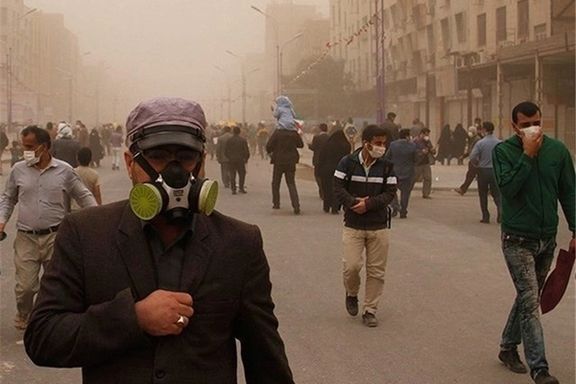President Masoud Pezeshkian announced in a meeting on Friday that the worst is over in electricity and gas shortages which have plagued the country for over a month.
“Forecasts indicated that the state of the network could have been much worse than it is today," Pezeshkian reassured the public, saying the power grid was now stable
But ordinary Iranians routinely plunged in the dark have seen no improvement.
Yet another power plant near the capital stopped producing electricity on Friday due to shortage of diesel fuel, which has largely replaced dwindling natural gas supplies during the high demand cold season.
Gas production, Iranian media reported is down by up to a third even as Iran holds the world’s second largest reserves. Diesel supplies too are limited.
Iran’s largest natural gas reserves are in the Persian Gulf, in a field shared with Qatar which is a successful producer.
However, the natural pressure of the gas field has been declining in the last four years and Iran does not have the necessary technology to adequately tap its economic crown jewel.
Western technology and financial sanctions in place and lack of money for investment make it unlikely that they ever will.
At the same time, the Iranian currency stood at a historic low against major currencies, with the US dollar trading well-above 800,000 rials late on Friday. The battered currency has lost one-third of its value since early September.
Since the ouster of its lifelong ally in Syria’s Assad dynasty earlier this month, the Islamic Republic has found itself on the backfoot not only at the domestic front with the energy crisis, but also in foreign policy.
Several politicians and high-level officials on Friday either tried to sound the alarm or blame internal and external enemies for the existing state of affairs.
“Today is a day for national unity and cohesion. Enemies have surrounded us from all sides, yet we fear nothing, for this is the trait of God's supporters," Chairman of the Expediency Council Ayatollah Sadeq Amoli Larijani said in a public gathering.
"Wise strategy and divine virtue dictate that we preserve divine values. Let us avoid words that lead to division.”
Mohammad-Hossein Safavi, a Friday Prayer Imam in northern Iran, lashed out at Jews and Israel as the root cause of the Islamic Republic's troubles.
“According to God's words in the Quran, the Jews are the most hostile beings and exert all their efforts to infiltrate Islamic societies,” he told his congregation.
Opponents of the Islamic Republic on social media are trying to divine when it will fall, similar to Bashar al-Assad in Syria.
Some give it just weeks, while others say it will not survive until the end of 2025. Their dire domestic situation and regional defeats are not lost on officials and clerics, who try to show strength or blame enemies.








